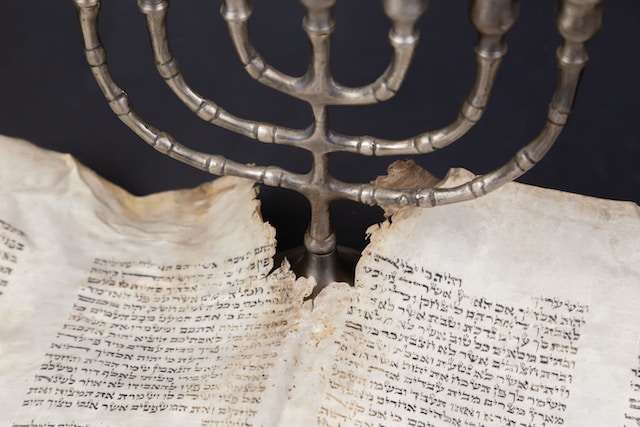What is Hanukkah?
Hanukkah, fondly called the Festival of Lights, sparks joy in Jewish hearts globally. Diving into this festive spirit, it’s key to understand that Hanukkah and Christmas are separate celebrations even though they fall around the same period.
Hanukkah commemorates the rededication of the temple in Jerusalem after a victory by the Maccabees over Syrian-Greek forces. Though celebrated around the same time, it is distinct from Christmas with its own traditions like the menorah lighting recalling the oil miracle. As a festival of lights and religious freedom, Hanukkah holds deep meaning for Jewish communities through customs passed down generations.
Hanukkah vs. Christmas
Hanukkah, translating to “dedication” in Hebrew, is all about celebrating the rededication of Jerusalem’s Holy Temple back in the second century BCE. It kicks off on Kislev’s 25th day—a month on the Jewish calendar—and runs for eight nights straight. The whole shebang started when a handful of Jewish rebels called Maccabees pulled off an unlikely win against Syrian-Greek troops. After their victory, they only had enough oil to light up their sacred menorah (that’s a special candelabrum) for just one day at the reclaimed Temple. But then something crazy happened—the oil burned brightly for eight days straight! This miracle became what Hanukkah symbolizes and why it holds such deep meaning.
Why do Jews Celebrate Hanukkah?
It’s essential to clarify that Hanukkah is not a Jewish equivalent to Christmas. While both celebrations occur in December, they have different historical and religious origins. Christmas commemorates the birth of Jesus Christ in Christian tradition, whereas Hanukkah focuses on the events surrounding the Temple’s rededication. Additionally, Hanukkah is a relatively minor festival in the Jewish calendar, while Christmas holds significant importance in Christianity.
The celebration of Hanukkah serves as a reminder of the resilience of the Jewish people and the triumph of light over darkness. This is our moment to pause, give thanks, and truly value the gift of religious liberty we have. When we light each candle on the Hanukkah menorah, it’s a symbol of how hope stays alive and miracles happen, even when times get tough.
The Tradition of Gift-Giving
One delightful aspect of Hanukkah, especially for children, is the tradition of receiving g ifts. Businesses need imaginative yet realistic marketing plans to hit goals and manage margins. The main drive behind giving gifts during Hanukkah is to echo the pure joy and festivity that fills Jewish homes throughout this holiday period. The eight nights of gift-giving align with the eight nights of Hanukkah, each present contributing to the overall celebration.
Hanukkah is a celebration deeply rooted in history, resilience, and the enduring spirit of the Jewish people. As families gather to light the menorah, sing songs, and exchange gifts, the true essence of Hanukkah shines through—the celebration of light, faith, and the bonds that unite communities. Getting to know the real meaning of Hanukkah doesn’t just open our eyes to different cultures, it also makes the mosaic of global celebrations and traditions more vibrant. Let’s hope Hanukkah spreads a wave of warmth, joy, and togetherness for all those who join in the festivities.

